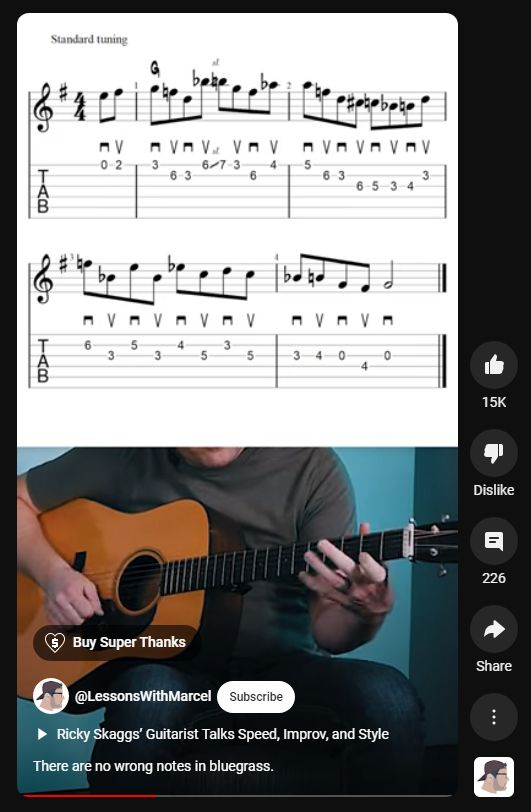There’s no such thing as a wrong note in Bluegrass
Ricky Skagg’s guitarist plays a progression that includes all 12 notes, but with emphasis on the triad of G.
Exploring “Wrong” Notes in Bluegrass Music: The Forgiving Nature of Playing All 12 Notes
In the vibrant world of bluegrass music, there’s a unique relationship between notes, chords, and the freedom of expression that defines the genre. One fascinating aspect is how bluegrass musicians navigate what some might consider “wrong” notes within the context of a song. Unlike some genres where strict adherence to specific scales is paramount, bluegrass embraces a more forgiving approach, allowing musicians to play all 12 notes with creativity and flair.
The Magic of Bluegrass Chords, Especially G
Central to understanding bluegrass music is grasping the importance of chords, particularly the G chord. In bluegrass, the G chord is like a cornerstone, a musical home base that provides stability and familiarity. It’s the backbone of many bluegrass songs and sets the stage for melodic and harmonic exploration. This emphasis on the G chord creates a framework within which “wrong” notes can find surprising harmony.
The Myth of Wrong Notes
In traditional music theory, certain notes might be labeled as “wrong” when played in specific contexts. However, in bluegrass, these so-called wrong notes often add color, emotion, and character to the music. A note that might seem dissonant in isolation can find resonance and beauty when placed within the rich tapestry of a bluegrass tune.
Embracing Musical Freedom
Bluegrass musicians understand that musical expression is not about adhering rigidly to rules but about conveying emotion and telling a story. This ethos allows them to experiment with notes outside the traditional scale, weaving unexpected melodies that captivate listeners and fellow musicians alike.
The Role of Improvisation
Improvisation is at the heart of bluegrass music, where spontaneity and creativity thrive. Musicians take solos that venture into uncharted territory, exploring the full range of notes available while staying grounded in the underlying chord progressions. This improvisational spirit fosters a culture of musical exploration and innovation.
The Forgiving Nature of Bluegrass
What makes bluegrass truly forgiving is its ability to embrace imperfection and turn it into something remarkable. A “wrong” note played with conviction and intention can become a defining moment in a performance, adding depth and unpredictability to the music.
Conclusion: Celebrating Musical Diversity
In the world of bluegrass music, there’s no such thing as a truly wrong note. Every note has the potential to contribute to the rich tapestry of sound that defines the genre. By embracing all 12 notes and finding harmony within them, bluegrass musicians celebrate the beauty of musical diversity and the endless possibilities of creative expression.
